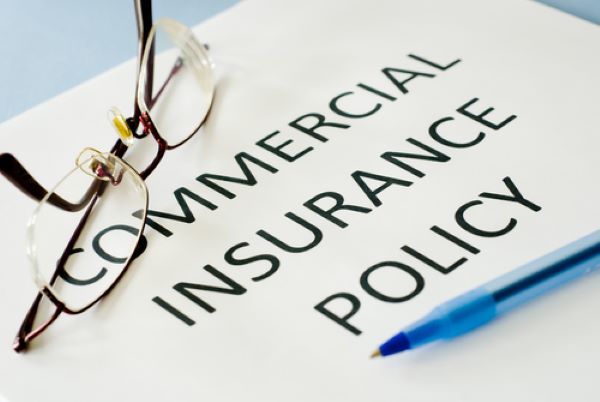 |
| By | June 15, 2024 |
Experience modification factors (EMODs) can confuse business owners, particularly those new to workers’ compensation insurance. Keep reading to learn about EMODs, their purpose, calculation, impact on your business’s insurance premiums, and actionable steps to improve your rating. What Are EMODs and Why Are They Important? An EMOD is a numerical rating assigned to a business by its workers’ compensation insurance carrier. This rating reflects the business’s past loss experience, indicating its workplace safety record. A lower EMOD signifies a safer workplace with fewer claims, while a higher EMOD suggests a higher risk of claims and potential losses. An EMOD of 1.0 means your workplace has an average risk of accidents. This translates to paying the base rate for workers’ compensation insurance with no discount or surcharge. However, the true significance of EMODs lies in their substantial impact on your workers’ compensation insurance costs. How Are EMODs Calculated? EMODs are calculated using a complex formula that considers various factors, and the weighting of each factor varies by state and insurance carrier. However, the core principles remain consistent across the board. Here’s a breakdown of the key factors influencing your EMOD: It’s important to note that the exact formula used to calculate…

Experience modification factors (EMODs) can confuse business owners, particularly those new to workers’ compensation insurance.
Keep reading to learn about EMODs, their purpose, calculation, impact on your business’s insurance premiums, and actionable steps to improve your rating.
What Are EMODs and Why Are They Important?
An EMOD is a numerical rating assigned to a business by its workers’ compensation insurance carrier. This rating reflects the business’s past loss experience, indicating its workplace safety record. A lower EMOD signifies a safer workplace with fewer claims, while a higher EMOD suggests a higher risk of claims and potential losses.
An EMOD of 1.0 means your workplace has an average risk of accidents. This translates to paying the base rate for workers’ compensation insurance with no discount or surcharge. However, the true significance of EMODs lies in their substantial impact on your workers’ compensation insurance costs.
How Are EMODs Calculated?
EMODs are calculated using a complex formula that considers various factors, and the weighting of each factor varies by state and insurance carrier. However, the core principles remain consistent across the board. Here’s a breakdown of the key factors influencing your EMOD:
- Loss History: This is the primary factor influencing your EMOD. The number and severity of past workers’ compensation claims directly affect your rating. More frequent or severe claims lead to a higher EMOD. Here’s a data point to illustrate the impact: a single claim costing $10,000 can increase your EMOD by 0.01, while a claim exceeding $50,000 can lead to a jump of 0.05.
- Industry Classification: Businesses are assigned industry codes based on their primary operations. These codes inherently reflect the level of risk associated with the industry. For instance, the Bureau of Labor Statistics (BLS) reports that in 2022, the construction industry had a lost workday injury rate of 7.0 per 100 full-time workers, compared to 2.4 for professional and business services. This inherently higher risk translates to a higher base EMOD for construction companies than for an office-based business.
- Experience Period: EMODs are based on a specific period of past data, usually three to five years. This timeframe allows insurance carriers to assess your business’s long-term risk profile.
- Other Factors: Some states or insurance carriers may consider additional factors such as deductible choices, safety program implementation, and return-to-work initiatives when calculating EMODs.
It’s important to note that the exact formula used to calculate EMODs is proprietary information for each insurance carrier. However, understanding the core principles outlined above lets you identify areas for improvement that can positively impact your rating.
How Do EMODs Affect Your Business?
EMODs directly impact your workers’ compensation insurance premiums. As mentioned earlier, an EMOD of 1.0 represents an average risk profile and does not adjust the base premium rate. However, businesses with a safer workplace and a lower EMOD receive a significant premium discount. Conversely, businesses with a higher EMOD due to a poor safety record face a premium surcharge.
Even a modest difference in EMOD can translate to substantial cost savings or increased expenses on your workers’ compensation insurance. This financial incentive motivates businesses to prioritize workplace safety, as a strong safety record can result in significant cost savings.
Strategies to Improve Your EMOD
By prioritizing these strategies, you can improve your claim history and lower your EMOD over time. This translates to significant cost savings on your workers’ compensation insurance premiums. Remember, a strong safety culture is not only beneficial for employee well-being but also financially rewarding for your business.
You can take the following proactive steps to improve your EMOD and create a safer work environment for your employees.
Implement a Robust Safety Program
Train employees in safe work practices, hazard identification, and the proper use of personal protective equipment (PPE) relevant to their specific job duties. The Occupational Safety and Health Administration (OSHA) offers a variety of resources and training programs to assist businesses.
Hazard Identification and Mitigation
Proactively identify potential hazards in your workplace and implement measures to control or eliminate them. This may involve:
- Conducting regular safety inspections to identify and address hazards.
- Implementing engineering controls like machine guards or improved ventilation systems to minimize risks.
- Establishing safe work procedures for specific tasks to minimize the potential for accidents.
Return-to-Work Programs
Develop and implement a program that facilitates the safe and timely return of injured employees to work. Here’s what you can do:
- Offering modified duties whenever possible allows employees to return to work with limitations while recovering from injuries.
- Providing case management services to support injured employees throughout the recovery process.
- Maintaining clear communication with employees about their return-to-work options.
Work with a Safety Consultant
A qualified safety consultant can provide valuable expertise in assessing your workplace, identifying potential hazards, and recommending improvements to your safety program. They can also help you develop and implement effective return-to-work programs.
Maintain Accurate Records
Document all work-related injuries and illnesses thoroughly, including details of the incident, cause, and any medical treatment provided. This helps ensure accurate claim processing and avoids disputes that could negatively impact your EMOD.
Open Communication and Employee Engagement
Foster a workplace culture that encourages open communication about safety concerns. Encourage employees to report near misses and potential hazards to prevent future accidents. Additionally, involve employees in safety program development and implementation to foster a sense of ownership for workplace safety.
Continuous Improvement
EMODs are dynamic and reflect your ongoing workplace safety record. Regularly review your safety program, analyze incident data, and identify areas for improvement. Continuously refine your program to address new hazards and ensure its effectiveness in preventing accidents and injuries.
Tired of high workers’ compensation premiums? Cell Brokerage can help. Our experts can analyze your EMOD and recommend strategies to improve workplace safety, potentially lowering your insurance costs. Contact us today and see how much you can save!









